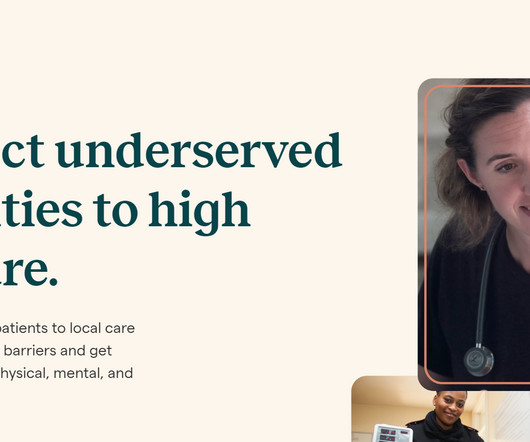An inside look at a national, bilingual telemedicine service
Healthcare It News
AUGUST 29, 2022
Regional and national health plans, employers, and Fortune 500 organizations use Galileo to help improve population health. Employees using Galileo avoid more expensive visits to in-person specialty, urgent or ER care 80% of the time. Spanish speakers. Galileo operates across all 50 states.












Let's personalize your content